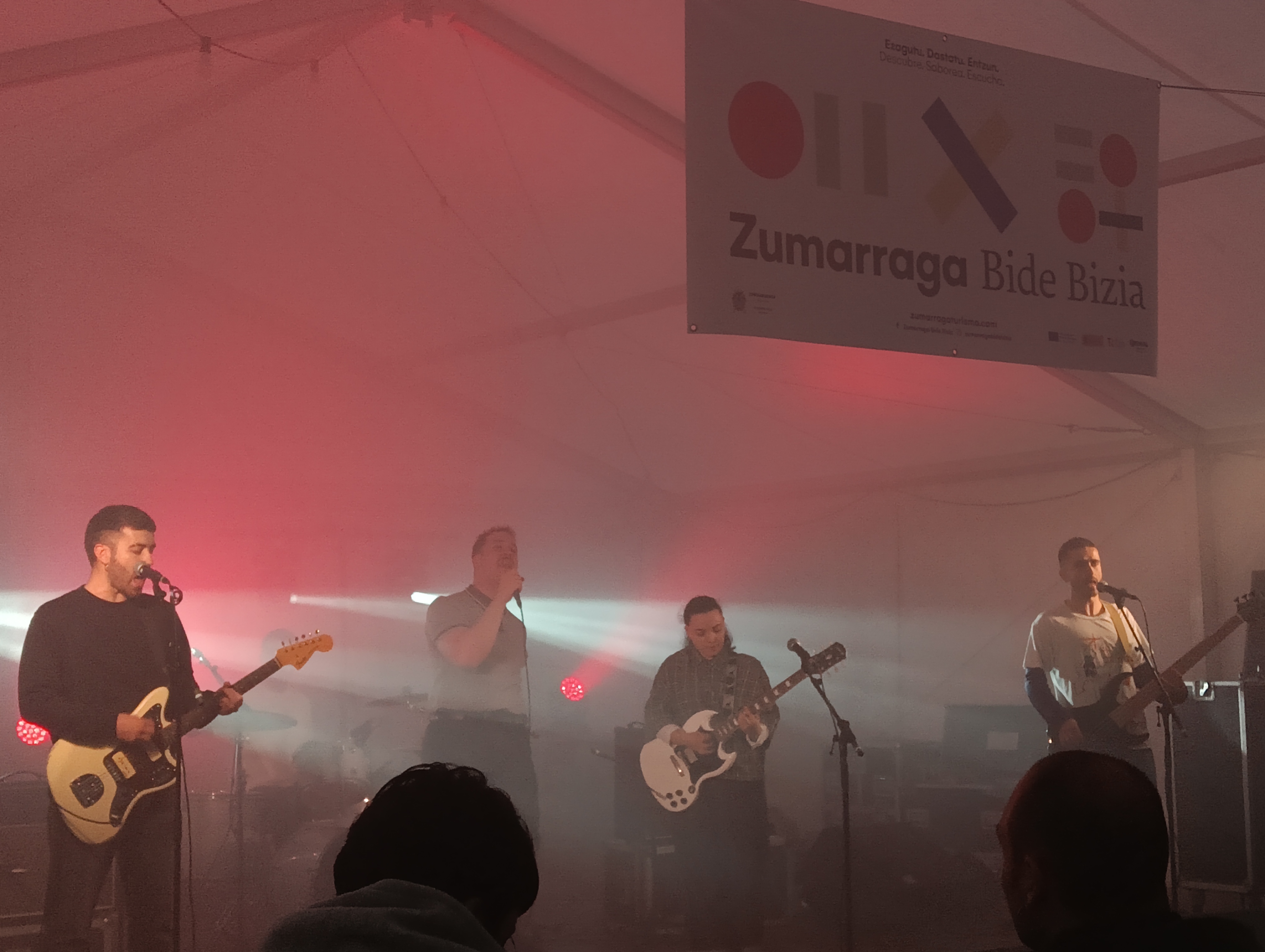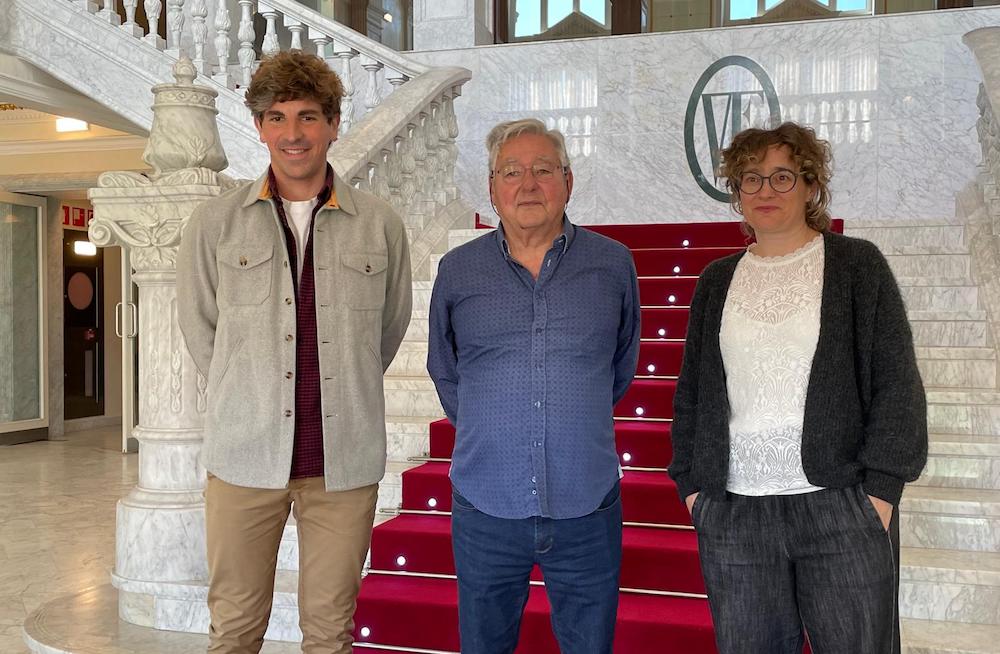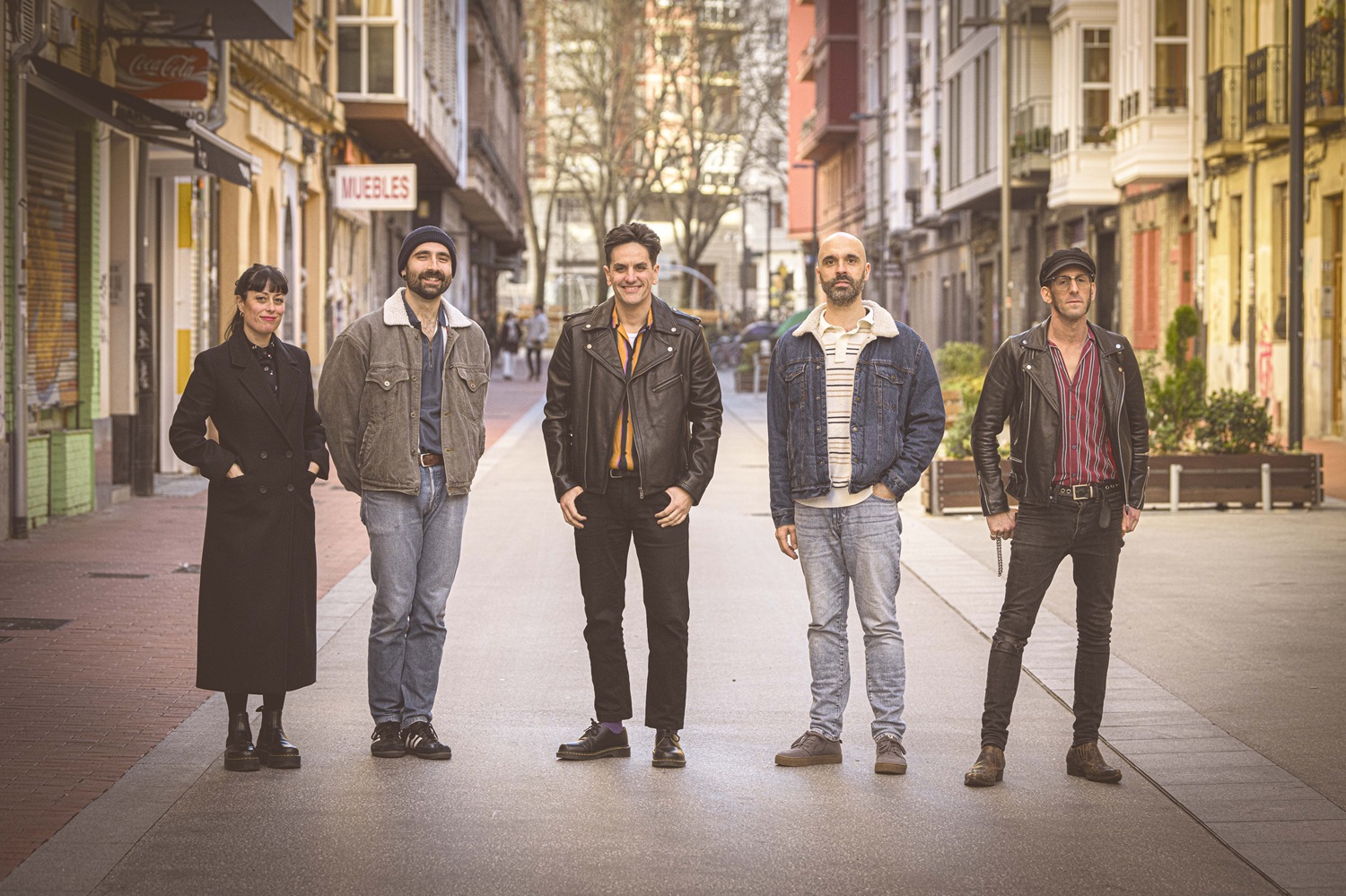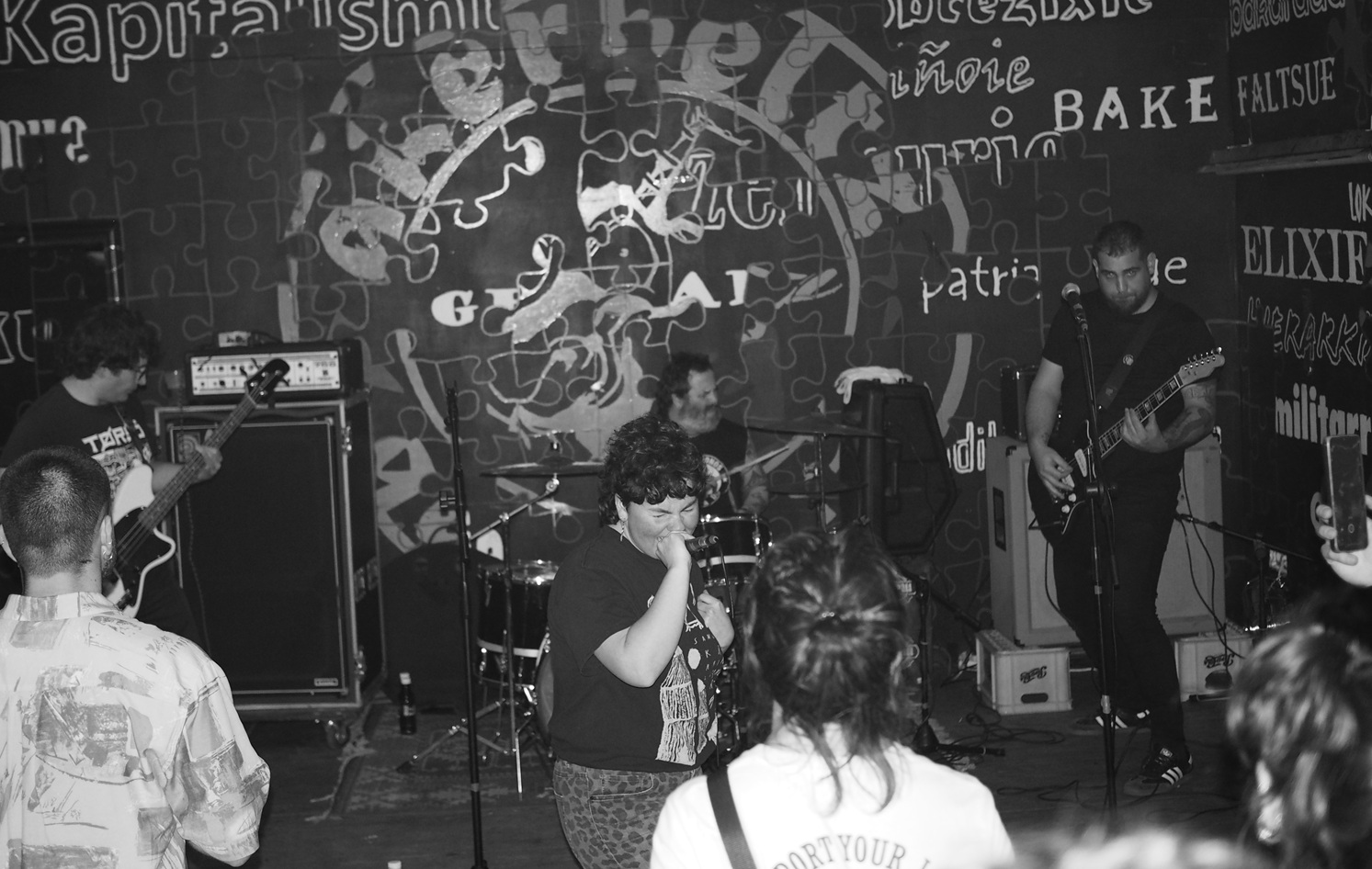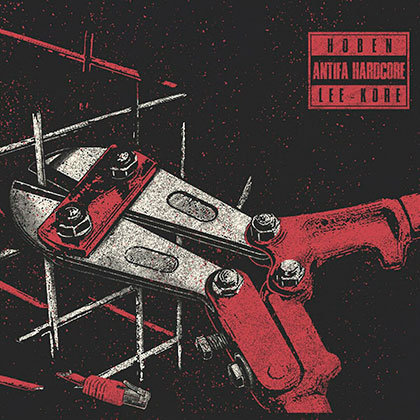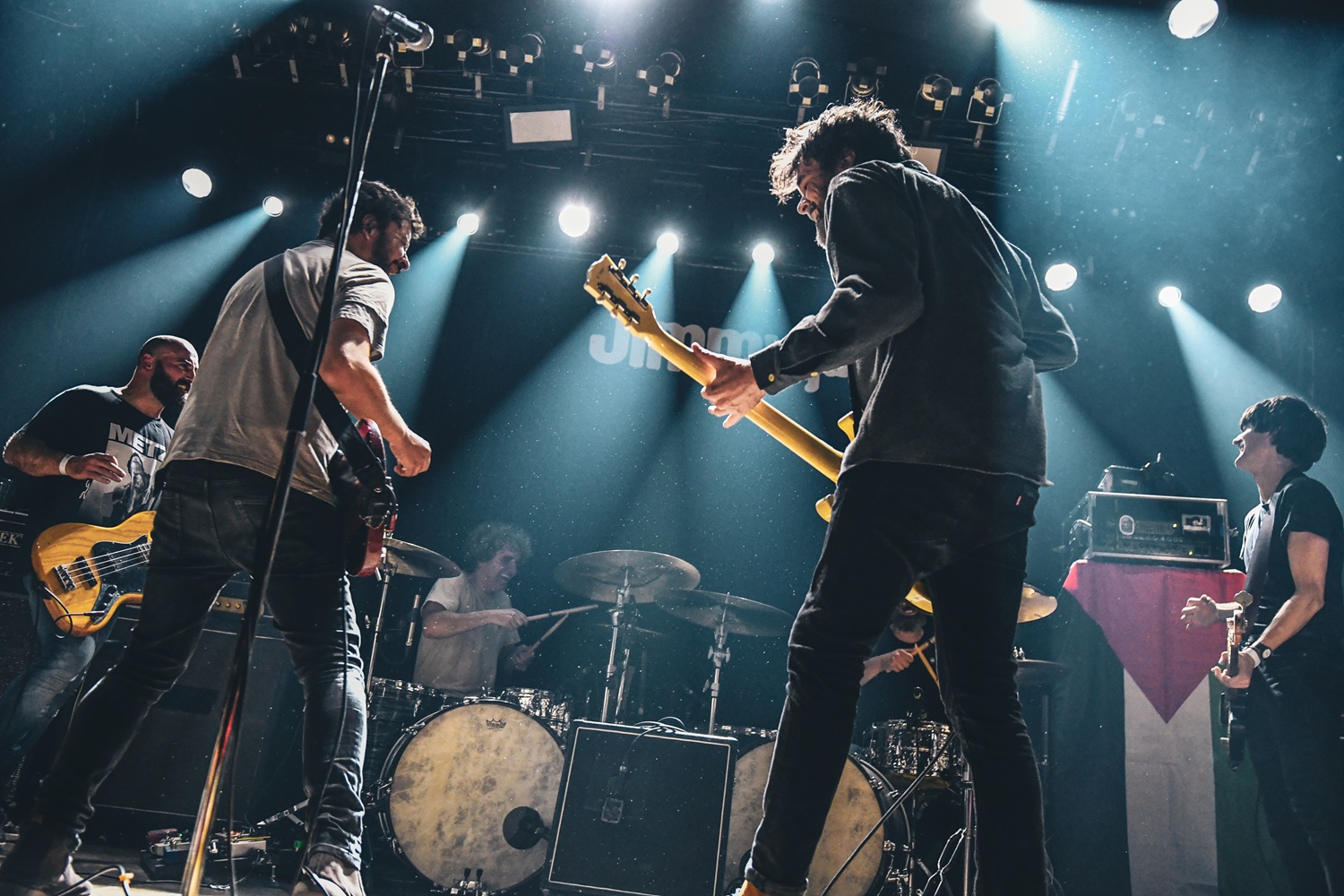"It's very interesting silence: you hear everything, so do your fears."
- Donostia-San Sebastian, an underground place, a window that allows the entry of a ray of light, piano, portfolio, speakers, prize bookcase, sheet music, books, DVD, old posters, comfortable chairs... Welcome to the Pascal Gaigne bubble.
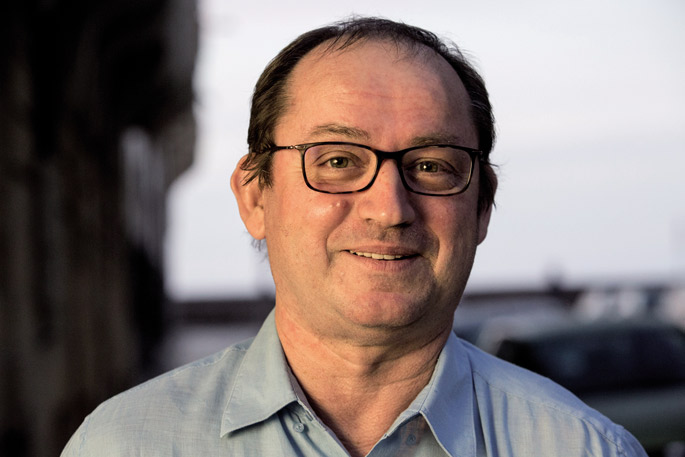
Every soundtrack takes as its starting point the first notes. Lives in childhood and youth.
My father was a military man, an eccentric, but a military man. We woke up on Sundays with military marches, but at the same time we heard Brassens, Brel and classical music. My father's office made us frequently move from city to city. It was terribly hard, with no teammates or coordinates, to have to start from scratch every time. At age 10, though, a school teacher discovered the gift of music to me, at age 12 I started playing guitar on my own. For my parents it was impossible to dedicate life to music, it could be nothing but leisure, pure libertinage, but at the time of university I left them no choice: “You let me enter the school of music and the conservatory or I go home.” They protected me for three years, until I started giving concerts with college friends. When they saw my photo in the Sud-Ouest, they were reassured. They were other times, much more conducive to surviving music. The political conscience of all areas was more developed and widespread, the militancy was the hallmark of cultural acts. In the Basque Country we have known a golden age that has fallen with the wear of time and the systematization of the mold.
How has the wear of time affected your relationship with music?
At first I wanted to be a guitarist, get together with people, give concerts. Music was my bubble to escape the people I didn't like at all. By this means of escape I suffered the rest. I've always discarded working in the company, depending on my superior. It was impossible, impossible. It was clear that music was the door of independence. However, I didn't imagine myself as a composer. I was not short of wanting, but I felt like the world of the few elected. One day, though, a acquaintance asked me for music for one film, they made me a commission for another, I started to compose for the theater and for orchestras, and I realized what it is, what I really liked. So I saw that public attention didn't attract me, that at concerts I had never felt entirely at ease, that it was weird to sit and play in public. Since then, I have been through work storms and droughts; sometimes, not being able to say no, has led me to review the idea of my independence, but yet I live freer than the enslaved or unemployed workers who depend on shareholders’ assemblies.
Both on the stage and in the study, always in the shadow, almost always for others.
Spectacularity doesn't appeal to me. I prefer to work hand-in-hand with directors and assemblers, to work as a team by putting my bit of sand in. This allows me to promote myself through my work. I don't need any secretary or agent to manage my career and sell my virtues. If someone likes my sound band, they'll call me. That is my measure. Because, although you can sell smoke, in our country there is no safe formula, nobody knows what will be a success. Tastes and intuition have a lot to say, the path that takes the exchange between what the director proposes to you and what you propose to the director is decisive, you have to define a style, have your own personality. So I say that the good soundtrack is the music that surprises me, which can give a way to work that didn't happen to me in my head, that opens a window in the middle of a hard wall.
Is that the function of the soundtrack?
The music for film that I like has to give clues about what you don't see on the screen, awaken emotions, transmit script details that can't be converted into images. It's a parallel path, a shortcut to feelings. In European cinema music is the character of the film, it is to transform sequences and give its personal touch to history. In most Hollywood movies, however, he's a commentator who does nothing but underline what the images show. I can do it too, but I'm not interested. In fact, it's a craft job, like a shoemaker. Every time I'd like to make a different shoe, from thinking about the pattern to the last needle, but if you come blind to asking for the industrial red shoe, I fix it, I know do. In our work, it is essential not to try to demonstrate anything. Music has to work in the movie, and what matters is that the movie works, whatever the music is.
How do you work?
As a creator and listener, I like fun and surprises. I'm tired of always doing the same thing. I get bored easily from myself. Every time I realize that patterns appear to me, I walk along the paths I know, my instinct asks me for a change. The most interesting pieces I've created are discovering strange lands. Continuous innovation is the key to mental and artistic health. Our job is not to make screws. I need diversity and that's why I work for film, ballet, theater, orchestras, art exhibitions ... I'm drowning instantly, if I don't find the deaf who let me do the same. So, I try to build it by deconstructing it, not above anything and not missing anything. When I'm asked if I have any method, I answer that I don't have all the methods in the world and none at the same time. Sitting and working is the most reliable method. However, the only method applies to itself on a regular basis the same rules and before it becomes aware it falls into the inertia of repetition. The key is to continuously change the rules of the game, to start here today, to try tomorrow. I've been creating music for life, for me it's not just a job, it's a need.
Is silence also a necessity?
I was born in France, I lived there for several years, and when I came to San Sebastian, I was deaf and deaf with the noise and the continuous railing. It is a great suffering for me to ask for the escape route. Cinema and television constantly use music to keep people alert, both in the shops and in the elevators they put music -- I don't know if that rains of noise atrophy our brains. It's very interesting silence: you hear everything, so do your fears. When in a restaurant you are getting up and yelling “Shut up!”, in the movies I like to put only the necessary music. If music doesn't matter, if it doesn't work at all, why put it on? Silence also has its role.
Not only the noise, but also the prizes.
I have a conflicting relationship with the awards, full of thorns. They have a beautiful and nice difference. It's the recognition of your work, you're applauded, you're congratulated all over the world -- things we all like. However, I know how they work, I know that they are as random as the wind, that they can be unfair. That's why I say that the important thing is to have a job, which would change all the rewards earned for the work. If you have work, you're active, it's a sign that your music is taken into account. Because prizes fill you with personal satisfaction, but work? I know composers and actors who have won very pompous, jobless awards that struggle to survive on the desert journey. Because they identify you too much with the award-winning movie, because the style of the award-winning soundtrack labels you, people may believe you don't know how to do anything else. Prizes can be venomous gifts. They don't fix your life and they can annoy you.
Joserra Senperena said that today the best music is made in the movies.
There's everything. Fortunately, the hand of composers is increasingly present, there are more and more pieces peppered with the personality of their creators. But if you jump into industrial cinema, it's all harder. There are fifteen people in the meetings to decide whether they like music and you don't know who are twelve of those fifteen, what function they have... He knows nothing. However, everyone has the right to give their opinion, they have an impressive control dinner and they only think about the formula of total success. In addition, because TVs are involved, they want to produce for their screen, molds appear, and it's hard to understand that making sound bands is not producing screws. Thank you now, thanks to the development of technology, with few means that can make very interesting pieces. That has radically changed the film landscape. Commerciality reduces vision, closes the plane, measures the quality at the box office. For Banking it will be a very interesting criterion, but society cannot measure the level of a film only based on the money it has raised. This means engaging in best-sellers and condemning poetry or essay. Let's be careful, let's invest in best-sellers, poetry and philosophical essays, in harnessing the benefits of commercial films in experimentation. As long as we don't, we're losing a lot of ideas along the way.
And when do you cross the paths of technology and creativity?
Technology has influenced creation since the human being is human. It's not the surprise of the last 30 years. I've done a lot of research on electronic music, I attach as much importance to owning myself as I own my own work tool. If you don't accept and control technology, it tramples on you. So technology has made our ways of working easier, it has simplified exchanges, it has allowed low-budget projects, but unfortunately people now think that the keys are squeezed and whole melodies come out. We have forgotten that the creative process is not so extreme, that the pause of time is imperative. Many times it has happened to me to think about finishing a soundtrack and “Now I know what I want to do, I should start again.” But no, technology has made everything faster, more immediate, and of course, speed leads to inertia. Because technological programs suggest what you have to do, they propose what they have as if there was nothing else, and to realize, you swallow the hook and you think there's nothing else. That's why I try to control the tool and transform the possibilities and sounds offered to me by the computer, to make electronic sounds tailored to me, and not to forget that beyond the standard there is life.
“...in the game of coexistence and you in the small berts...”.
The machine sharpens all the notes and never gets tired. By following the machine you can compose complete musical phrases without breath. It doesn't put any impediment, write down you and tap. But music is a living art, not a list of notes, not a math. It depends on the interpretation of the human being, on imperfection. There are no two artists playing a musical phrase the same way. Everyone has their sonority, their musicality, their personality. To disregard it is to see the machine by the musician. Machines are fine, they are necessary, but we cannot question the need for the human hand. We cannot choke ourselves in the whirlwind that has led this society to forget everything. Although it is a little more expensive than the antipodes, you have to look at the music with some eyes that have made us understand that it is worth buying the shoes that are made in the village of the neighborhood. For years we have thought nothing more than consuming. It's time to look at what's behind what we consume.
1958, Caen (Frantzia)
Musikari eta konposatzaile polifazetikoa. Oholtzak utzi eta estudioan konposatzen dabil azken aldian. Nazioarteko orkestra, talde instrumental eta bakarlariek kontzertuan interpretatzeko piezak, edo antzerkirako, arte erakusketetarako zein zinemarako soinu bandak konposatzen ditu. 80 film baino gehiagotan hartu du parte (El Sol del Membrillo; Azul oscuro, casi negro; Lasa y Zabala; Loreak...), zuzendari ospetsuekin lan eginez eta sari andana eskuratuz.
“Musikaren lengoaia lausoa izateak egunero irekitzen dizkizu ate berriak. Bakoitzaren bizipenen araberako oihartzunak eragiten ditu musikak, hori da bere xarma. Hori eta siestatik pieza berria buruan esnatzea. Askotan erlaxatze hutsak garunean duzun nahaspila askatzen dizu, bestelako bizimodu bat ahalbidetu, jendartearen moldeetan ez sartzeko askatasun tanta bat oparituz”.
Aramu + AimarZ
When: April 26.
In which: The Zumarraga Open Field.
---------------------------------------------------------
The website of the City Council says: "The tourist brand Viva Viva and the festival of the same name are designed to show the world the soul of... [+]
Transparent Beings
When: April 20th.
In which: In the Plaza of the Castle of Pamplona.
-----------------------------------------------
The concert is only half an hour away in the Plaza del Castillo de Pamplona; but it is still half empty, because it is raining. Whether... [+]
Obduction of Amenaza / Zirt Zart (Split-ep)
2024
---------------------------------------------------
The musical panorama is gigantic, impassable. Among them there are a few large groups that absorb all the foci; many others that are dedicated to the pursuit of it, and... [+]
Aposapo + Mäte + Daño Dolor
When: April 5th.
In which: In the Youth Center of Markina-Xemein.
---------------------------------------------------------
I’ve made my way to the cheese house with the shopping cart full of vegetables, and we’ve spent the evening cutting... [+]
Poliorkêtês
Kerobia
Autoekoiztua, 2025
--------------------------------------------------------
Azken aldian, lerrootan asko nabil hausnartzen musikak izan beharko lukeen “misio historikoaz” eta abarrez. Eta, nolabait, zer egin beharko lukeen... [+]
On March 7, the 150th anniversary of the birth of Maurice Ravel, the best Basque composer of all time. And in LA LUZ a tribute was paid to this composer, recalling the influence of the famous Bolero on the collective imagination.
By chance, Deutsche Grammophon has just released... [+]
Olatz Salvador
Noiz: martxoaren 15ean.
Non: Deustuko jaietan.
------------------------------------------------
Martxoak beti du deustuarrontzat kolore berezia; urtero ospatzen ditugu jaiak, San Jose egunaren bueltan. Bi asteburu bete festa, eta urtetik urtera Deustuko... [+]
Antifa hardcore
Lee-Kore + Hoben
Autoekoizpena
---------------------------------------------------------
Tamalez ez da ohikoa Arrasaten hardcore kontzertuak egitea, bestelako musika eszenak nagusitzen direlako. Hala bada, joan den larunbatean herriko gazte batzuen... [+]











